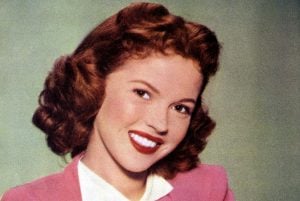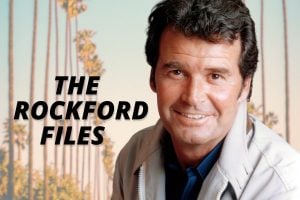Ultimately, Kennedy won 303 electoral votes to Nixon’s 219, and was inaugurated on January 20, 1961.
Despite all their efforts, the two men’s stories didn’t end well. Kennedy was assassinated in Dallas just three years later — and while Nixon finally ascended to the Presidency in 1968, he resigned in 1974, under the dark cloud of the Watergate scandal.
Nixon concedes victory to Senator Kennedy (1960)
The Daily Telegram (Columbus, Nebraska) November 9, 1960
Vice President Richard M Nixon today conceded victory to Senator John F Kennedy on the basis of returns from his home state of California.
The losing candidate was up early “sizing up the situation” after virtually conceding the presidential election to Kennedy shortly after midnight.
President Eisenhower announced earlier in Washington that he was preparing to send his congratulations to Kennedy.

Nixon’s statement was read by his press secretary, Herbert Klein.
“I want to repeat through this wire congratulations and best wishes I extended to you on television last night. I know that you have united support of all Americans as you lead this nation in the cause of peace and freedom during the next four years. Signed, Richard Nixon.”

To Washington today
Klein also said Nixon would leave the hotel at noon to catch a chartered airliner for Washington.
Two things that pleased the vice president about the election, Klein said, he won a tremendous popular vote and the margin of victory is less than 1 percent.
“This is a great satisfaction to him,” Klein added. He said Nixon also was pleased about returns from Illinois and other states that see-sawed back and forth.
Another thing was the fact that he ran far ahead of the party, Klein said. Klein said he believed the vice president’s personal popularity had helped carry some GOP candidates to victory.
The vice president went to bed briefly this morning after making his near-concession statement at the Ambassador Hotel. At that time, Nixon was in smiles while his wife, Pat fought back, tears as she stood by his side.
MORE: First ladies: When Mamie Eisenhower took Jackie Kennedy on a tour of the White House (1960)

Kennedy wins; Nixon Concedes (1960)
The Evening Sun (Baltimore, Maryland) November 9, 1960
John F Kennedy elected President of the US — Eisenhower sends congratulations
California puts senator over top; popular vote is closest since 1888
John Fitzgerald Kennedy, in a suspense-laden photo-finish beat Richard M Nixon today to become the first Roman Catholic, the youngest man, and the first son of the Twentieth Century to be elected president of the United States.
FIND OUT MORE IN THIS BOOK: JFK: Coming of Age in the American Century, 1917-1956

The 43-year-old Democratic senator from Massachusetts clinched victory shortly after 9 am (EST) by capturing the crucial 32 electoral votes in Nixon’s home state of California. He took California by beating the vice president in his own home county of Los Angeles.
LATER: Richard Nixon had a vision of victory for his presidential campaign (1968)
Kennedy had gone into the lead early Tuesday evening, but during the night and today’s small hours, uncertainty in California and a few other states had kept the final outcome in doubt.
With victory in California, Kennedy had won 21 states with 299 electoral votes, 30 more than the magic majority. He was leading in two states with 38 electoral votes which gave him an indicated total of 337.
Nixon had won 24 states with 185 electoral votes, and led in two with seven electoral votes for an indicated total of 192.

Nails down prize
At the moment California’s electoral total nailed down the big prize for Kennedy, the senator had polled 30,329,441 popular votes compared to 29,740,948 for Nixon. He had only 50.49 percent of the two-party vote, the smallest percentage margin since 1888.
In the final hours before Kennedy’s victory became assured, the contest had narrowed to two big states, Illinois and California.
Ironically, it was Nixon’s native state that put Kennedy over the top with its large bundle of electoral votes.
Kennedy still led in the counting for Illinois’ 27 electoral votes, but no longer had to have them to win.
It was a dramatic climax to a dramatic campaign and a dramatic political career. Both candidates had fought hard down to the wire, and President Eisenhower had intervened stoutly to help the man he picked in 1952 and 1956 to be his vice presidential running mate.

But the Eisenhower magic, heretofore infallible, didn’t work this time. Only in Ohio of the states where the President campaigned did Nixon win.
Both candidates and millions of Americans had gone to bed Tuesday night or early today not knowing who the voters had picked to lead the nation in its next four fateful years.
But the Kennedy tide was running. Nixon made a public but qualified concession before 3:30 am EST. He congratulated Kennedy for his campaign, but held back for the time being on the loser’s traditional message to the victor.




















One Response
Such a contrast to today and Trump. Nixon was a profoundly flawed man, who in all probability was cheated out of the Presidency in 1960 courtesy of the Daley Machine. Yet he refrained from contesting the results because he knew it would tear the country apart. Similarly, as Watergate metastasized, he resigned rather than create turmoil for the country. At his core, Richard Nixon was a patriot. Trump, on the other hand, is a malignant narcissist who has been and currently is engaged in shredding the Constitution to enhance his own ego and power. Ever think you would miss Richard Nixon?